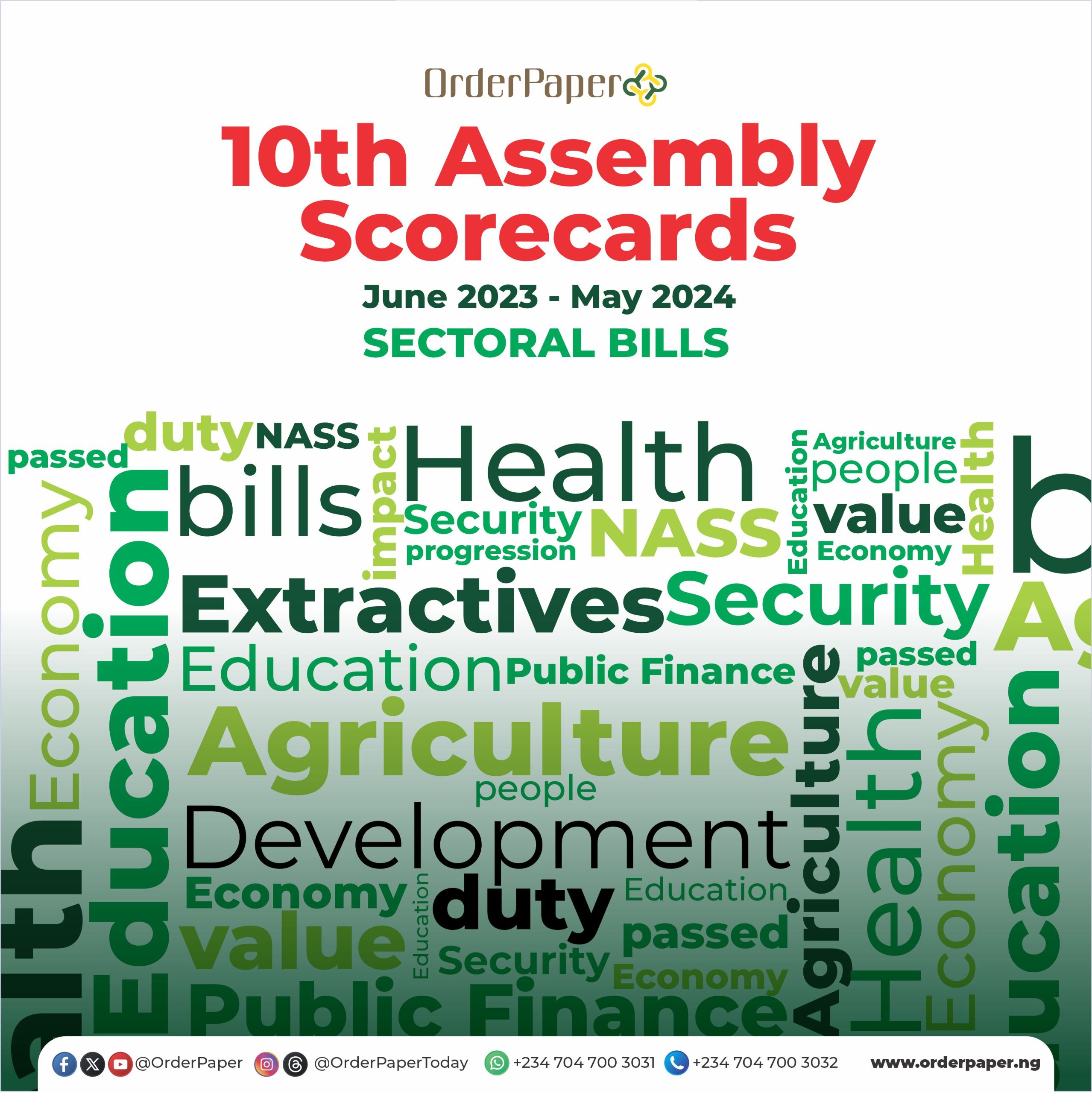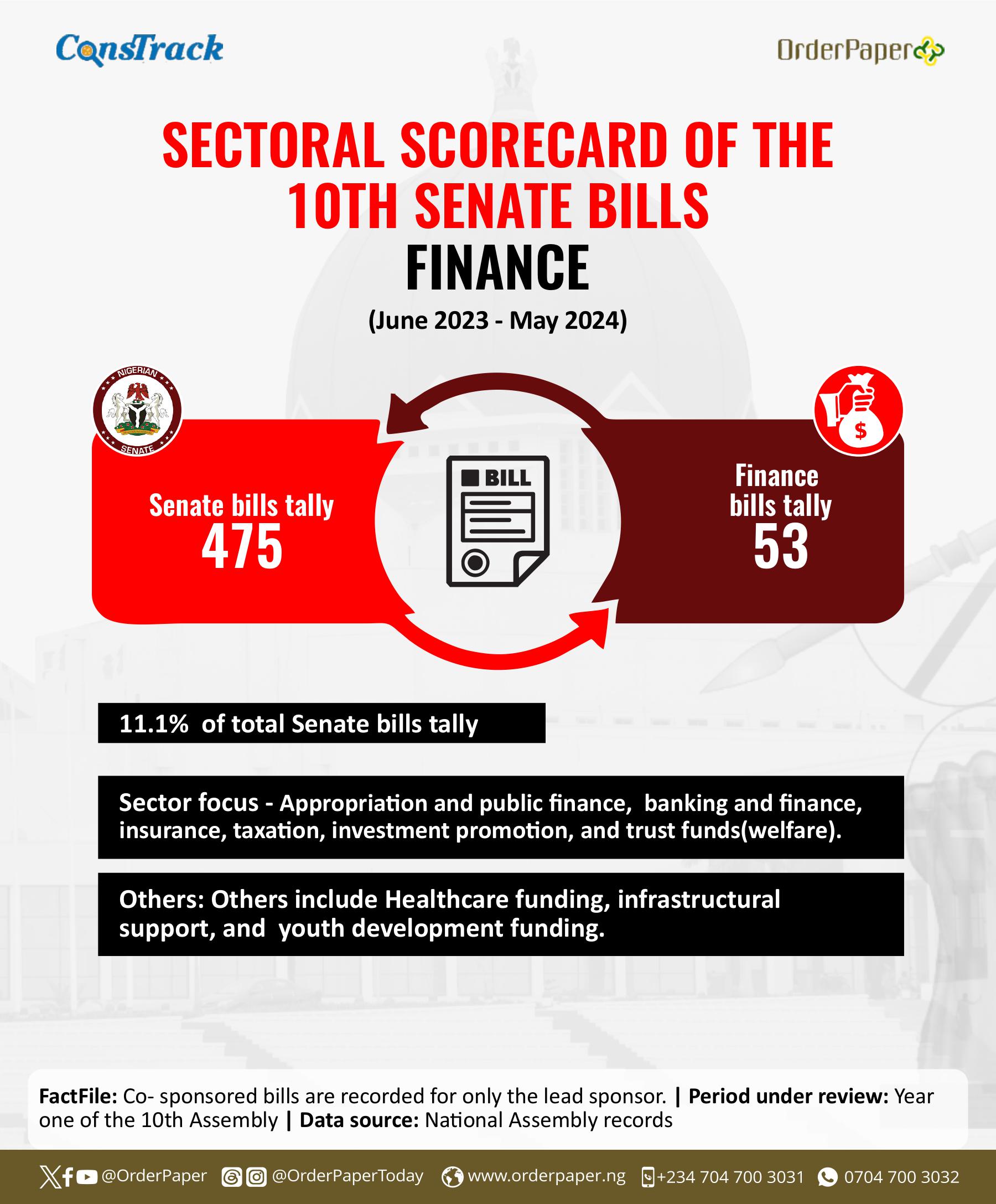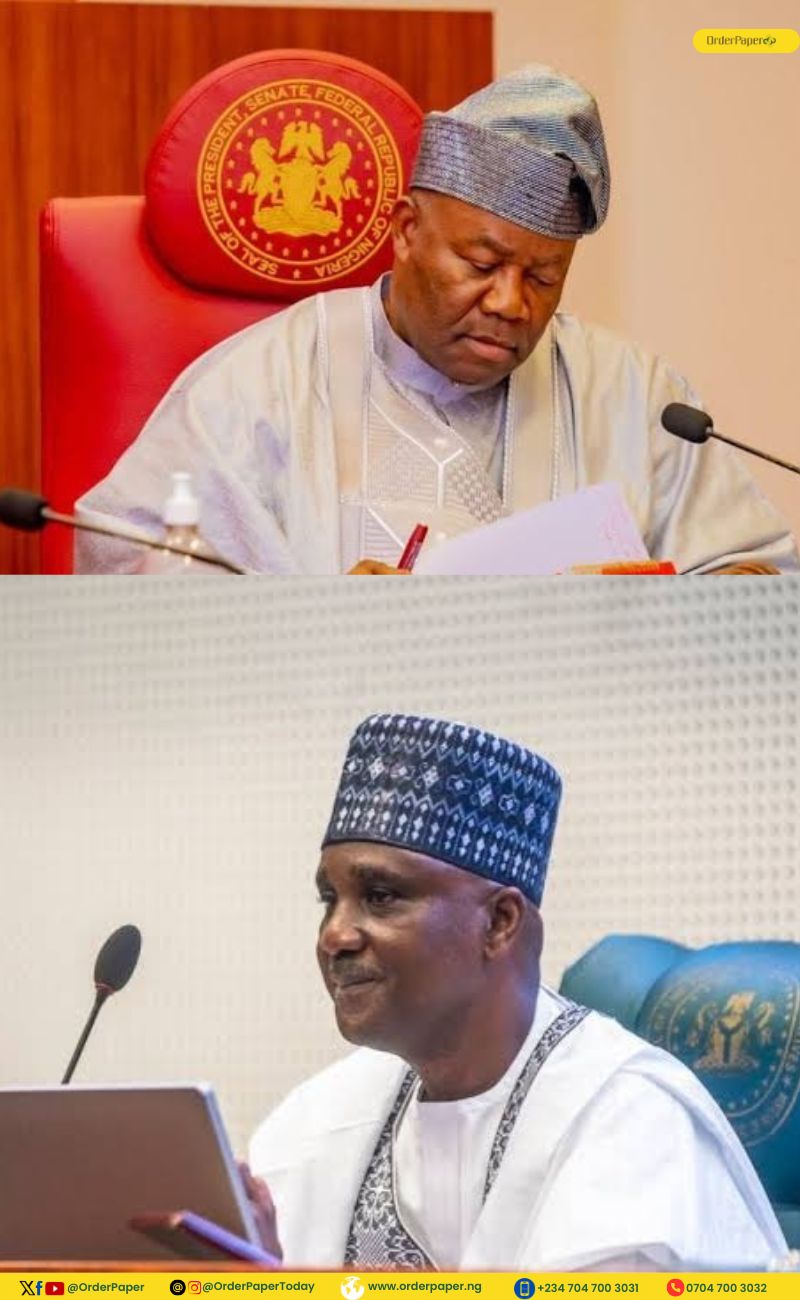
53 finance-related bills were introduced in the first year of the 10th Senate, fueling concerns regarding the legislative body’s effectiveness in addressing the country’s pressing economic challenges.

Amid severe inflation, escalating public debt, and declining investor confidence, the introduction of these 53 bills send a mixed message, especially with many stalled at first reading.
The current economic turmoil in the country necessitates urgent and decisive action from the legislative arm to stabilize the economy, restore investor trust, and lay out a sustainable path forward. However, the pace and focus of the senate have been widely criticized.
The Economic Landscape: Rising debt, inflation, and investor exodus
Nigeria’s economy is in distress. As of March 2024, the national debt stands at 121 trillion naira, with an increasing portion of government revenue being allocated to debt servicing. Inflation is soaring, eroding the purchasing power of ordinary Nigerians and driving up the costs of essential goods and services. Additionally, waning investor confidence has prompted many foreign and domestic investors to withdraw, citing economic uncertainty, regulatory unpredictability, and concerns regarding the country’s long-term financial stability.
While the proposed bills encompass various domains such as appropriation and public finance, banking and finance, insurance, taxation, investment promotion, and welfare trust funds, there is a prevailing concern that the senate has not introduced sufficient comprehensive legislation to tackle the breadth of Nigeria’s economic challenges—especially as many of these bills remain stalled at first reading. The economic crisis demands a bold and transformative legislative approach.
ALSO READ: 10th NASS REPORT CARD: Climate Change gets10 of 475 bills sponsored in Senate

A Missed Opportunity: Lack of Comprehensive Economic Legislation
The introduction of 53 finance bills amidst Nigeria’s economic crisis raises questions. The nation grapples with deep-rooted structural issues, including reliance on oil revenues, inadequate economic diversification, and increasing debt. Addressing these challenges requires more than financial reforms; it calls for wide-ranging legislation aimed at fostering economic growth, alleviating poverty, and ensuring long-term fiscal sustainability.
To stabilize Nigeria’s economy effectively, restore fiscal discipline and creation of an environment conducive to investment, the senate must pursue ambitious reforms, recognizing that piecemeal legislative measures will not suffice; instead, bold, transformative action is essential to steer Nigeria towards a sustainable economic future.
10th NASS Report Card: Read up on the performance of other senators and members of House and other specialized categories here



